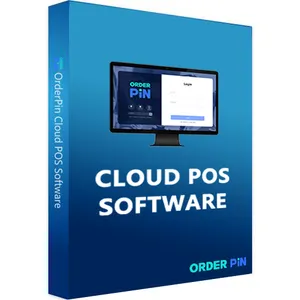
All categories
Featured selections
Trade Assurance
Buyer Central
Help Center
Get the app
Become a supplier

(1281 products available)


































A gsm pos terminal is classified as a compact device that helps the user perform sales within seconds. This terminal uses the GSM network to process, and it allows organizations to run their operations effectively. The common types of these tasks include the following ones.
These are portable devices that can be carried by an employee while serving customers, say in a restaurant or outdoor event. They are lightweight and operate using batteries that can last for a given time depending on usage. The terminals enable a business to take sales without visiting the shop.
This is a regular and stationary terminal designed for everyday use in retail counters or restaurants. Unlike mobile, countertop versions are linked to power outlets and are more intense. They come with more features, and their design permits high payment processing.
These terminals are combined with other existing systems, such as a cash register. They help in minimizing the need for separate devices in payment processing. Integrated types of terminals are considered efficient since they minimize the need for extra equipment while providing functionality.
These include Bluetooth and WiFi-enabled devices that can be used within a particular range. They provide the same flexibility as mobile terminals but eliminate dependency solely on cellular networks. Wireless terminals are ideal for businesses in restaurants that require servers to take orders directly from tables.
Each type of GSM terminal has its features and advantages, and therefore, the choice of the terminal will depend on the business model and the customer's needs. Careful selection helps ensure that payment processing is efficient, convenient, and dependable.
A GSM POS terminal is used widely in retail outlets to process customer transactions. The terminals make the payments easier by giving the customers different payment options and helping to reduce the time spent on queues. They are crucial in managing daily sales and stock integration.
In the restaurant sector, these terminals enable orders to be taken and paid directly at the table. It does away with the need for cash to be carried or given in one place, as customers can be served fast and efficiently. The mobility contributes to better service delivery and increases customer satisfaction.
The service industry, which includes businesses such as salons and repairs, uses the terminals for transaction processing. The ability to pay using cards lowers the cash dependency rate among customers. This convenience enhances the overall service experience and increases operational efficiency.
For e-commerce companies, the terminals are valuable during the cash-on-delivery orders that require card payments. They help in ensuring that the payments are cleared before the delivery of the product. This solution helps e-commerce businesses to provide a more flexible payment option.
The travel and hospitality sectors use these terminals for ticketing, booking hotels, and other travel services. Quick payment processing is important in ensuring customers can check in and out smoothly and book services. It also helps in effective financial transaction management within the industry.
The GSM POS terminals are easy to use, and to start using them, the business owners have to set their accounts with the processors. After that, the terminal has to be connected to a mobile network or Wi-Fi. Transactions can be started by entering the amount and by swiping the card or using the contactless feature.
Regular maintenance helps in the smooth functioning of the terminals, such as keeping them clean and frequently updating the software. The users should avoid liquids or food on the devices and use covers for the terminals to prevent damage. Moreover, the software update should be done to enhance the security features and introduce new ones.
Regular software updates ensure that the terminals have the latest security protocols. Outdated software has vulnerabilities that attackers can exploit. Businesses should set up an automatic update system or manually check for updates to keep the software secure.
These terminals support encryption technology that protects the card information during transmission. Encryption makes the customer data unusable to thieves or unauthorized persons, and this makes it very secure.
Setting strong passwords and limiting terminal access only to specific authorized persons can enhance security. User roles and permission definitions help in the prevention of unauthorized activities, such as dealing with funds or changing settings.
However, some of the common practices are avoiding the operations that can cause dangerous situations. Having knowledge of PCI DSS and EMV standards, help in protecting the customer data and transaction processes. Vendors should be required to show how their terminal complies with these standards.
Moreover, only certified manufacturers should be contracted to supply terminals, as they must adhere to commonsense practices. Inspecting the equipment and taking records will help detect and avoid unsafe equipment usage.
When such devices are discovered, they should be disabled and reported to a relevant authority. In case of an accident, it is important to have first aid equipment or personnel ready to administer care. Establishing procedures and rules concerning accidents and analyzing cases will increase safety.
A: The global system for mobile communication refers to the technology used to enable a cellular connection for the device.
A: They do not require a landline; thus, the business can operate almost anywhere. Because they get the signal from the mobile network, they work effectively in remote or urban areas. This mobility aids in speeding up the payment process as payments are made on the spot.
A: Yes, modern terminals support the contact payments system, which uses NFC technology.
A: These terminals are designed to work in various environments. They are perfect for outdoor use because they are mobile and can withstand different weather conditions. Indoors, they easily connect to networks and work efficiently in their mobility.
A: Using devices adhering to industry standards like PCI DSS and EMV can ensure safety. Regular software updates and data encryption help maintain secure transactions.